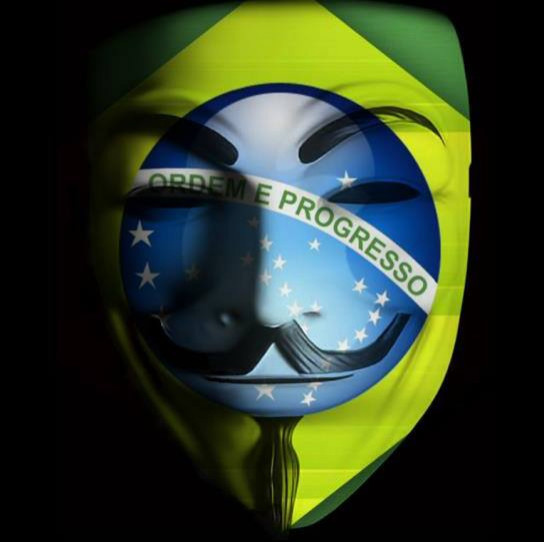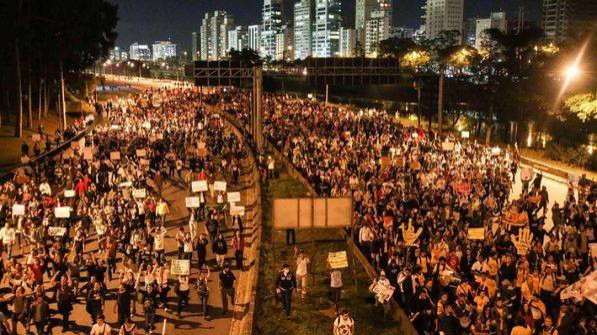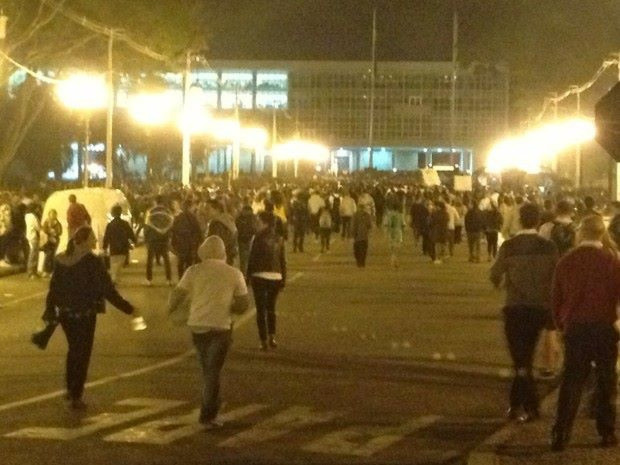As Brazil Erupts In Widespread Protest, One Demonstrator Speaks [Exclusive Interview]

More than 1 million joined protests in the streets of Brazil on Thursday night. By Friday morning, President Dilma Rouseff had called an emergency cabinet meeting to discuss what should be done.
What began as a protest over a bus fare increase has expanded into widespread outrage, at an infrastructure that is developing much slower than the economy in Brazil, a country that spars with the United Kingdom for the title of the world's sixth-largest economy by gross domestic product.
Politicians have yielded to protests across parts of Brazil such as Rio de Janeiro and São Paulo by rolling back bus fares to their original cost earlier this week. According to Letícia Frose, a Brazilian student and protester who I interviewed over the phone this week, the bus fares are important, but returning them to their previous price is “not enough.”
Letícia said on Tuesday that she was in Curitiba, the capital of Paraná, on Monday to protest. She said that she is 18 years old and a university student. She is passionate about her country and enthusiastic about how her people were taking their frustrations into the streets.
“The World Cup will be here,” she said. “The government, they spend so much money for everything like this, but we don’t have money for education, for hospitals, for doctors.”

Events like the 2016 Olympics, set to be hosted in Rio de Janeiro, and next year’s World Cup are set to be hosted in Brazil. Protesters like Letícia ask how tourists will reach the stadiums if the roads are crumbling and the airports are faulty.
“Our taxes are high, and we don’t know where it is going. Look, it’s hard to say what, but we need them to do something. We need to change this,” she said, adding later that it was not communism that the protesters wanted, just the things that Brazilians “need.”
Originally getting in contact with her on an Anonymous Brazil Facebook page, I asked Letícia if she was part of Anonymous.
“I am a part of Anonymous, but I am an activist, not a hacker. It’s different,” she said. “And I don’t have a mask.”
Letícia said that the government and police and Brazil have announced to demonstrators that they would be arrested for wearing masks. Rumors have circulated throughout protests and Anonymous groups online that the police have been identifying protesters and later arresting them in their homes.
She struggled to find the English word for “cachecol,” meaning "scarf." She said that she used one to hide her face to avoid being targeted by police. She was using a new Facebook account, because, she said, her father had tried to restrict her Internet access to protect her from getting involved in the protests any further.
“In São Paulo, many people were hurt, and my father is afraid they will hurt me too,” she said. “It’s a big city; [my parents] don’t want me to be alone.”
At the end of our interview on Tuesday, she seemed excited to say, “For the cities and even in the country, it’s getting bigger.”

Letícia was right. More have joined the protests that began as a small group of teenagers and protesters in their early 20s who were fighting for free or greatly reduced bus fare for Brazil. The movement has grown to involve people of all ages, joined in their dissatisfaction with the government.
Letícia was excited again on Thursday when the protests seemed to start having an impact. “Have news,” she messaged on Facebook. I asked, “What is it?”
“The government gave us one of our claims,” she wrote. “But we are going continuous with the protests.”
The reduced bus fare, according to Letícia, was one drop in the bucket. It was not enough, as Brazilians had more important needs, like education, health care, infrastructure.
“And especially the corruption of rulers,” Letícia wrote. “This is the tip of the iceberg. We do not want more bread and circuses.”
© Copyright IBTimes 2024. All rights reserved.




















